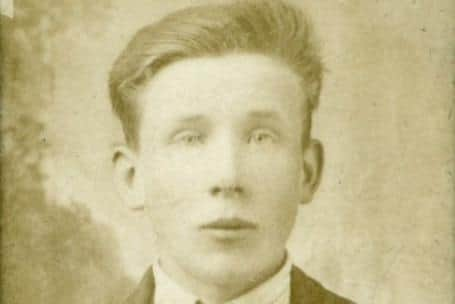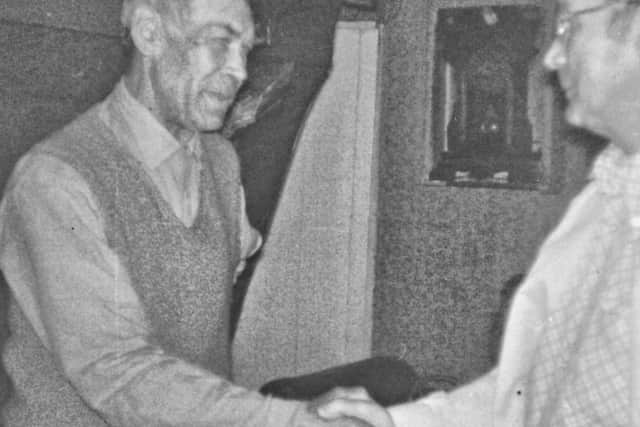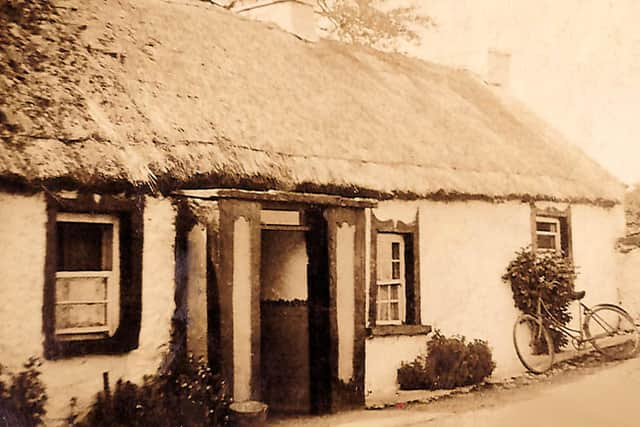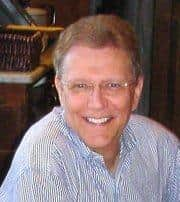Captivating story of a young Tyrone boy’s perilous journey to a new life in Canada
This article contains affiliate links. We may earn a small commission on items purchased through this article, but that does not affect our editorial judgement.
and live on Freeview channel 276
The Florida-based former journalist and writer describes his book - Traveler (As long as you can dream, nothing is cast in stone) - as a homage to his dad and based on his experiences.
He said: "My father was just 16 nearly a century ago when he was swept from his family's small Ulster farm by the British Home Children program overseen by the British government, Catholic Church and other organizations.
Advertisement
Hide AdAdvertisement
Hide Ad"He was one of more than 100,000 other poor Irish and British children the program scattered across the globe as free labor to Canada, Australia, New Zealand and South Africa. Most, like my father, never saw their parents again."


Traveler is the story of young Neddy McKenna who is sent on a perilous ocean voyage from his parents' Ulster farm to life as an indentured servant in Canada.
He takes with him just a small, battered suitcase and his dreams. But in those dreams, again and again, he encounters a mysterious stranger who guides and warns the boy, challenging everything he knows or thinks he knew. But who is Traveler? An apparition? A guardian angel? Or something Neddy couldn't possibly comprehend.
In the following Q&A, John Heagney says one of his greatest regrets is not talking to his father more.
Advertisement
Hide AdAdvertisement
Hide AdDid your father talk about his experience of life in Ulster before leaving?


As I recall, dad spoke sparingly about his life in Ireland and in Canada ... or maybe I just wasn't listening. He said times were hard and his family was poor, and that he left home for Canada alone at 16. Beyond that, everything else is lost. I chalked that up to him being from an older generation that just wanted to put all of that in the past. And that brings me to one of my greatest regrets: Not talking with my father more. Children are so busy growing up, starting careers and families of their own that they all too often don't pay attention to the importance of family history. They don't ask about the struggles of those who went before, thinking that the life they enjoy just happened and was always that way. In my father's case, he never mentioned ... not even once ... that he traveled from Ireland to Canada as an indentured servant. And it wasn't until nearly 40 years after his death that I discovered the truth he kept hidden for most of his life. Research filled in many gaps, but his first-hand accounts died with him ... unheard and unappreciated.
Have you visited the farm where he grew up near Cookstown?
I first visited the farm in 1973 when my uncle lived there alone, as my grandparents had died many years before (My grandfather in 1957 and my grandmother in 1964). All the sisters -- grown and married -- had moved away. Two to England and the rest scattered from Belfast to Cookstown, Since then, I've been back to the home place another half dozen times over the decades. Ownership passed out of the family when my uncle died in 1995, but I still make a point to go back during each visit. Now, unfortunately, the farmhouse is empty and in disrepair, unloved for nearly 30 years. I tried to purchase it years ago, but my offer was rejected. My dream is to buy and restore it.
How long did it take you to write the novel?


Traveler actually started as a short story in May, 2021, but a short story didn't sit well with my family in Ireland. "What happens next?" they'd ask. So, the story sat for about two months until I figured out my next move or even if there was one. Then the story became a novella. ("What happens next," they asked again.) And from that, Traveler emerged as the draft of a novel. All in all, with starts, stops and research, editing, more research, family input, editing, more family input and rewriting ... two years.
Advertisement
Hide AdAdvertisement
Hide AdTraveler is getting a lot of favourable reviews on Amazon, has anyone impacted by the British Home program reached out to you after reading the book?
The reaction has been surprising, not only from people whose parents and grandparents were swept up by the British Home Children program in Ireland, but those in England, Scotland and even Australia. Family histories shared with me have gone as far back as The Great Hunger and as late as the 1960s involving a number of similar emigration programs. Most intriguing, though, are the number of people who never heard of the British Home Children program. Most are in Canada and the U.S., but many also are in Ireland.


Do you have any ancestors living in Northern Ireland?
I was fortunate enough to meet all my aunts as an adult, but they have since died. However, I still have cousins living in Magherafelt, Desertmartin, Lisburn, Ballycastle and Maghera. We have developed strong bonds and deep friendships over the years and have crossed and recrossed the Atlantic many times to stay in each other's homes, although we never met until I was in my early 20s. There also are second and third cousins In Dunamore Cookstown and the Pomeroy area.
Do you have plans for a sequel?
The ending to Traveler is a closely guarded secret. But since Traveler's release in March, I have been asked time and again about a sequel. And in much the same manner as my family wanted to know more, to know what Neddy McKenna's future holds, readers across the globe have asked, "What happens next?" The simple answer? I don't know. I have been tossing around a few ideas, but everyone (including me) will have to wait and see what hatches.
Advertisement
Hide AdAdvertisement
Hide Ad